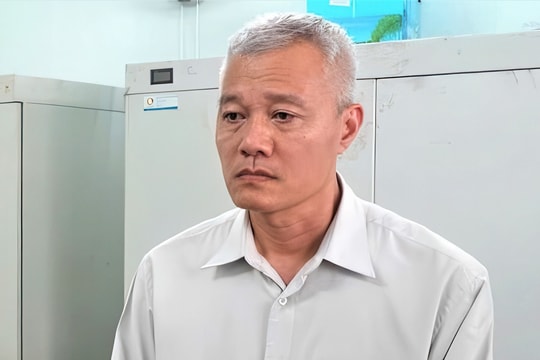Quang Ngai determined to revoke Taiwan's $4.5 billion steel project
Provincial leaders have just proposed to terminate the Guang Lian Dung Quat project by June 30 at the latest.
Quang Ngai province has just announced the conclusion of the inspection of the management, land use and progress of the Guang Lian Dung Quat steel project. This conclusion states that there are sufficient conditions for the management agency to decide to terminate the project. Local leaders also said that they have sent a document to the ministries and central government asking for opinions, requesting to terminate the project with Guang Lian no later than June 30.
 |
Investors have been holding land for 10 years without completing the project. |
The above decision was made by Quang Ngai province after the investor had "held" clean land for 10 years, causing great waste. Currently, Guang Lian has not agreed and has sent a document protesting the public disclosure of the inspection results of this unit.
Guang Lian Dung Quat Steel Project was granted a certificate in 2006, located in Dung Quat Economic Zone, invested by Tycoons Group (Taiwan, China) with an initial capital of 556 million USD.
After that, the project's scale and design capacity were adjusted many times. In 2008, Tycoons cooperated with E-United Company (Taiwan) and increased the capital scale to 4.5 billion USD, capacity of 7 million tons. In order to create favorable conditions for investors, the Economic Zone Management Board cleared and handed over 337 hectares of land.
In April 2012, two Taiwanese investors continued to invite JFE Corporation (Japan) to cooperate, but after a period of feasibility study, in September 2014, JFE announced that it would not participate in the project investment. After that, the investor asked to reduce the capital to 2 billion USD and produce steel plates instead of technical steel for the mechanical engineering industry.
In July 2015, Guang Lian sent a document to Quang Ngai province admitting that it could not arrange financial resources to continue implementing the project. The project has therefore stopped operating since mid-2014. As of September 2014, the project has only invested 42 million USD, of which the State budget has advanced 175 billion VND to clear the site. Quang Ngai Provincial People's Committee has met many times to discuss terminating the project, requesting to reclaim the granted land area, and liquidate assets to avoid wasting the site.
At the end of 2015, a domestic enterprise, Hoa Phat Group, sent a document requesting Quang Ngai province to allow it to invest in a steel project with a total capital of about 2-2.5 billion USD, a capacity of 4 million tons per year, and requesting to be granted 300-350 hectares of land under the management of Guang Lian. Accordingly, Hoa Phat requested the Dung Quat Economic Zone Management Board to completely resolve the issue of land allocation and assets attached to the land of the Guang Lian steel plant project and will pay back according to the principle of new project use.
The decision to withdraw Guang Lian’s project comes amid a surplus in the domestic and international steel industry. Also in the Central region, public opinion is currently paying attention to another major project in this field, Formosa (expected capacity of 10.5 million tons per year for phase I and 22 million tons for phase II) in both production and environmental aspects. Vietnam is located near the giant steel production market of China, so the feasibility of the Guang Lian Dung Quat project is considered very low. The Vietnam Steel Association has repeatedly "called for help" saying that the flood of cheap Chinese steel into Vietnam has pushed many domestic enterprises to the brink of bankruptcy. "The economic growth is slowing down, the steel industry planning with too large design capacity causes surplus, Chinese steel enterprises are looking for every way to export, even selling at prices lower than production costs, and Vietnam becomes an ideal market due to its geographical location nearby, helping to save on transportation costs," Vietcombank Securities Company commented. In addition, according to the ASEAN-China Free Trade Agreement, by 2018, the import tax on alloy steel will be 0%, further increasing the low price advantage of Chinese steel. |
According to VNE
| RELATED NEWS |
|---|


